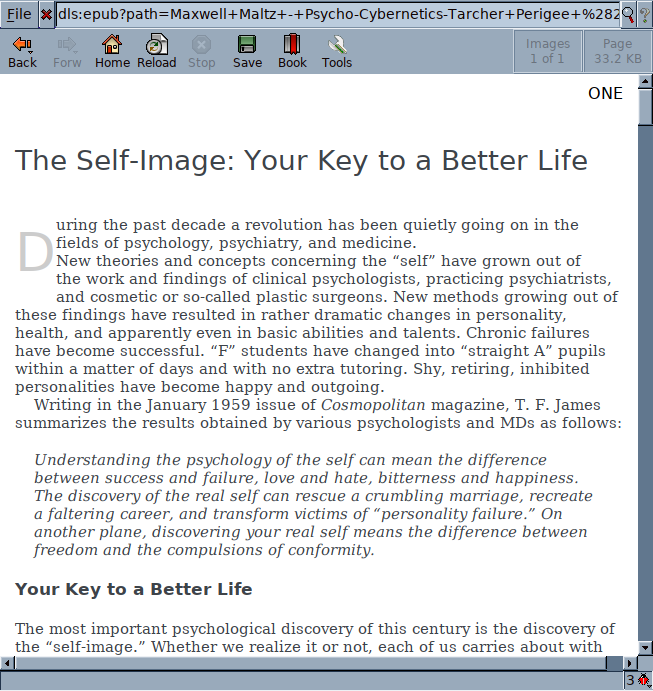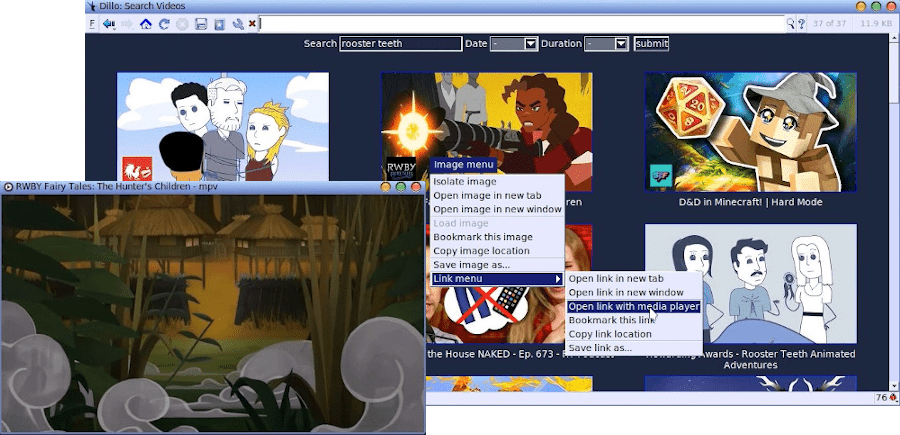Dillo+ (Dillo-Plus) is a lightweight (about 10MB) multi-protocol browser for Linux, BSD and unix OS in general, that does not use Javascript but still support many advanced features.
This project is a port of the official Dillo that is located at https://www.dillo.org with additions and fixes in part developed by me and in part merged from the DilloNG project located at https://github.com/w00fpack/dilloNG/.
Lightweight browsers, such as Dillo, are beneficial for loading websites quickly. Also, lightweight web browsers can work on older hardware where common browser would take up too many resources, that could freeze up your computer.
Because javascript is not used, extra bloat is not needed to be downloaded. If you have a slow internet connection, a web page that might have taken 3MB to download might only be 400kB with Dillo+.
Finally, your online experience can be more secure with Dillo+. Not only does it not use Javascript, rules can also be defined per website domain. These rules can block connecting to certain domains, block ads and trackers, and require sites to use encryption.
Note that not websites will work correctly without Javascript, so be forewarned.
Many features where added to the base Dillo code. Here are some highlight.
Dillo+ supports the lightweight protocols gopher and gemini in addition to http and https. It aims to become your default browser for accessing the smol web.
Gopher screenshot:
Gemini screenshot:
To make it easier reading articles from the web, and also to rearrange large pages in a format easier on the eyes, it is possible to activate a reader mode CSS from the 'Tools' menu.
Support for rendering pages and local files written in the gemini, gopher and markdown formats has been added.
To implement some advanced features, like Zip, EPub, RSS, Telegram channels and others, a system of external scripts/plugins called DLS (Dillo Local Script) has been added to the browser. You can see the available DLS using the prefix dls: (to call a DLS add its name after the prefix).
Here are some screenshots of the Epub reader DLS:
If wanted, there is a search dialog that is available by pressing 's'. It includes your search engines that are defined in your dillorc file.
You can search common sites by typing one of the following key letters, followed by a space and your search term. For example, 'dd pizza', will search the Duck Duck Go website for the term 'pizza'.
dd - to search DuckDuckGo
se - to search SearX (prvcy.eu)
se2 - to search2 SearX (metasearx.com)
se3 - to search3 SearX (searxng.au)
se4 - to search4 SearX (cosmohub.io)
ya - to search Yandex
wk - to search Wikipedia
ar - to search Internet Archive
fd - to search Free Dictionary
sp - to search Startpage
mn - to search Marginalia
te - to search Teclis
gg - to search Google
ge - to search GeminiSpace
lg - to search LibGen
gr - to search GoodReads
pb - to search The Pirate Bay
tw - to search Twitter
un - to search Unsplash
dv - to search Deviant Art
To modify these quick searches, refer to this link.
Dillo+ does not play media, such as audio and video, in the browser. Instead you can run media using your preferred desktop media player. The benefit is that playback will usually be more streamlined, without jitter. Your media player might also have options, such as video caching of live streams, recording, streaming and downconverting.
Please check under releases
Please see https://www.dillo.org for requirement details.
In brief, these two dependencies are sufficient for the browser:
- FLTK 1.3
- OpenSSL/LibreSSL
To run some DLS scripts you'll also need python.
The compilation system has been converted from the autotools suite used by the original dillo (see https://www.dillo.org for the old install details) to a plain Makefile system.
Before compiling the code you can personalize some compilation options in the Makefile.options file.
After that just run:
make
make install
- Obtain a release for your OS distribution, or compile Dillo from this repository's source code
- Install the application, and Click on the "Dillo+" menu option.
- Browse the internet the way you normally would
If you can use Mercurial, you can use the official code repository at htps://dillo.org. If you would like to use this GIT repository to submit code changes, please open pull requests against this GitHub repository. Here's some general guidelines when submitting PRs:
- In your pull request, please:
- Describe the changes, why they were necessary, etc
- Describe how the changes affect existing behaviour
- Describe how you tested and validated your changes
- Include any relevant screenshots/evidence demonstrating that the changes work and have been tested
Enjoy using Dillo+!





